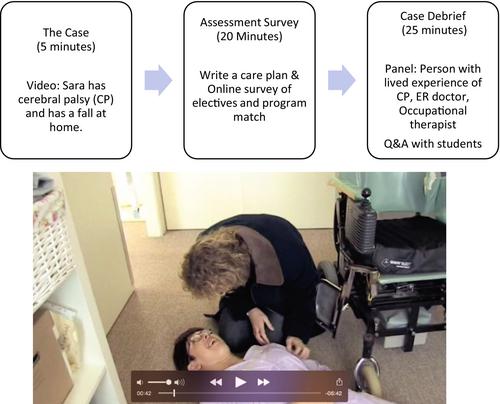Lasting Impact of Patient-Led Medical Education
Abstract
Background
Our university offers an interprofessional program to medical students in Year 1 of a 4-year undergraduate medical program: Health professional students learn from a health mentor—someone living with a chronic condition. This helps foster patient-centredness, empathy and communication skills. Long-term assessment of patient involvement in medical education is rare; thus, this study explores the lasting effects of 3-year post-program at entry-to-practice.
Methods
We conducted a case-based study of fourth-year medical students to evaluate the impact of learning from patients in the Health Mentors Program (HMP). Students analysed a video case of a person with cerebral palsy who fell at home and created a care plan. We compared students who participated in the HMP with those who did not, assessing how often they considered the patient's and caregiver's perspectives, the number of diagnostic tests ordered and referrals to other professionals and community services.
Findings
T-tests showed that HMP students significantly prioritised the patient's and caregiver's voices (p = 0.014, Cohen's d = 0.6) and ordered fewer diagnostic tests than non–HMP students (p = 0.001, Cohen's d = 3.3). However, there were no significant differences in medical consults, referrals to allied health professionals or community services.
Conclusions
This was the first, limited attempt to use case-based assessments to measure the long-term impact of patient-centred learning. Integrating patient perspectives into preclinical education may enhance students' ability to work collaboratively with patients in care planning. Designing structured assessments around patient-centred care can help ensure that students retain and apply these skills in their clinical careers.





 求助内容:
求助内容: 应助结果提醒方式:
应助结果提醒方式:


